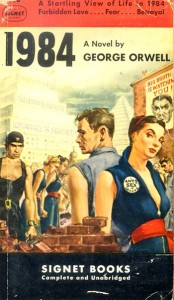 New Orleans I’m not sure that I could be classified as a Dave Eggers fan, but not being that much of a fiction reader, I’ve actually read a good sampling of his books, and I am an admirer of his imagination, his topicality, and his ambition. Of the four Eggers’ books I’ve now read, two of them lie in a very, dark gray area between fiction and non-fiction, Heartbreaking Work of Staggering Genius (2000), which was an extremely moving book and in my view a classic of sorts, and Zeitoun (2009) where he attempted to cast a New Orleans area painting contractor as a Katrina hero, that never rang true to me, though I appreciated his interest in New Orleans and our recovery. More recently, I’ve read Hologram for the King, that I also thought was an excellent, modern book of a salesman past his prime battling the recession, age, and family dysfunctionality, who tries to make a sale in the Middle East. Now having just finished The Circle, which is getting huge attention in the news columns and not just the book review section, Eggers is barely batting .500 with me once again.
New Orleans I’m not sure that I could be classified as a Dave Eggers fan, but not being that much of a fiction reader, I’ve actually read a good sampling of his books, and I am an admirer of his imagination, his topicality, and his ambition. Of the four Eggers’ books I’ve now read, two of them lie in a very, dark gray area between fiction and non-fiction, Heartbreaking Work of Staggering Genius (2000), which was an extremely moving book and in my view a classic of sorts, and Zeitoun (2009) where he attempted to cast a New Orleans area painting contractor as a Katrina hero, that never rang true to me, though I appreciated his interest in New Orleans and our recovery. More recently, I’ve read Hologram for the King, that I also thought was an excellent, modern book of a salesman past his prime battling the recession, age, and family dysfunctionality, who tries to make a sale in the Middle East. Now having just finished The Circle, which is getting huge attention in the news columns and not just the book review section, Eggers is barely batting .500 with me once again.
The Circle is Eggers’ shot at raising the specter of Orwell’s 1984 for our times. The central conceit is a company calling itself the Circle that is a thinly constructed amalgam of Google, Facebook, and Twitter. The corporate campus has the fawning acolyte employees that we associate with Apple and Google and the Silicon Valley crowd who feel righteously fortunate to get hired by the company so that can work in something approximating an elite, 20-somethings playground, even if their real jobs are simply sales with a spinning title. The drama, such as it is in the book, has to do with the closing of the Circle of information about all of us that theoretically would give the company so much information that they could ostensibly control us, subvert our democracy, and eviscerate any last, quaint notions that we have any privacy left.
Eggers is right to sound the alarm, but he seems unfortunately to be ringing for the wrong fire. The match for the Big Brother of Orwell’s totalitarian nightmare in 1984 is the work of the National Security Administration and our multi-billion dollar, ubiquitous out-of-control spying operation, not the teetering fortunes no matter how large of the new generation of techie companies.
Eggers is spot on in his critique of their sugar-in-your-coffee rationales of serving worldly purposes while trying to disguise their own corporate centric sales pitches. In the wake of the latest privacy erosion from Facebook in recent weeks, one business columnist reminded all of us that all Facebook has to sell is our personal information in addition to a weak advertising platform. All of these folks are so easy to satirize that Eggers is at no loss for targets, though unfortunately much of The Circle is actually a pretty boring, fast read narrated by a character so shallow and wannabe that it is very hard to care about her or believe that she would ever be much more than a corporate drone.
1984 was a genuinely frightening book, partially because it was about losing control and brute power. The Circle is about surrendering participation by playing with corporate toys. Eggers worries about the “likes” and retweets of today creating a culture of total conformity and lockstep thinking that bullies the individual, but frankly, in the circle world, it is still our hands on the computer hitting the clickers, and that is profoundly different than totalitarianism. Unlike our situation with the NSA where secret courts are ruling that having bought a cellphone we have already consciously “surrendered our privacy” by allowing our information over the networks, the Circle and its real life models depend on us bothering to participate. At worse we are agents in our own demise and at best these are corporations that are subject to the whim of our own continual boredom and search for better entertainment and more valuable information. Twitter’s average users are still following and followed by less than 100 people per user. Facebook may claim a billion “users,” but the level of real activity is on any regular basis is hardly 20% of that, which is significant, but hardly frightening.
We owe Eggers thanks for trying, but real life is stranger and scarier than fiction these days, and 1984 is on the front pages of our newspapers everyday more vividly than the pages of a novel can ever hope to imagine.